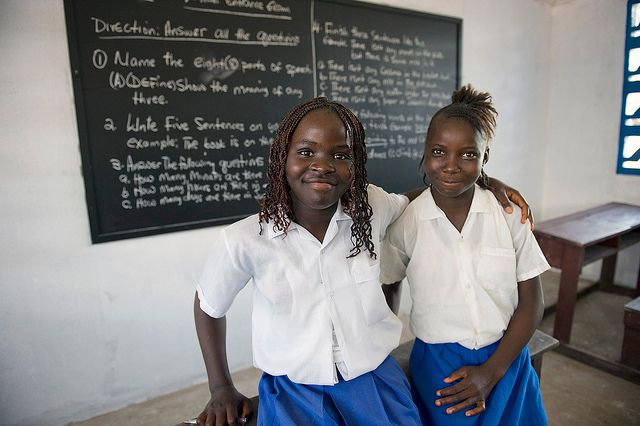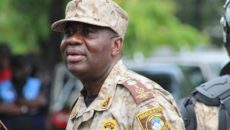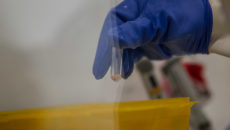MONROVIA, Liberia – Many questions remain unanswered. Six months after the closure of schools, the Liberian government has finally announced the reopening of schools. Although initially announced for February 2, the Ministry of Information today pushed back the opening date to February 16. President Ellen Johnson Sirleaf made the original pronouncement at a news conference in Monrovia. In July of 2014, when the deadly Ebola virus was at its highest rate of infection, President Sirleaf instituted a state of emergency. This brought many educational and social activities in the country to an abrupt end.
The West African outbreak of the deadly Ebola virus began late 2013 in the neighboring country of Guinea, from where it later spread to Liberia, Sierra Leone, with a few cases in other countries. It has since claimed thousands of lives.
Now that the virus infection rate seems to be calming down, the government has deemed it fit to resume educational activities in the country. Though the pronouncement by government is in good faith, it appears that there may still be some preparation needed.
Many parents were left jobless or with significantly reduced income as a result of the outbreak of the virus. For this reason, the move by the government to open schools, without putting in place proper mechanisms to address the situation, may likely undermine the enrollment of students this academic year. The government has promised subsidies to public schools but is yet to do same with private institutions in the country. Notably, public schools are not entirely distributed across the fifteen political subdivisions of the Country, which leaves private institutions to fill in the gap. As always, tuition fees for private schools are very expensive. In addition, given the current state of affairs, it is feared that many children of school going age will not have the privilege to enter the classrooms this semester or the entire year.
When asked about the issue, a father of six school-going children, Henry Sehkpor said, “[The] government know[s] very well how things have been in the country. [It] needs to come up with a plan to get our kids in school.†He continued, “We have been without jobs for months, and don’t have any money to send these kids to school. If nothing is done, my kids will have to wait for next year before they go to school.†Voila Paul, a mother of two, had this to say, “I can barely manage to feed us, where am I taking money from now to send any child to school.â€
It is also no secret that many children lost their parents to the disease, and that makes them vulnerable and in desperate need of assistance. As of yet, the government has not come up with any plan to incorporate those children in the classrooms. This means that some of them may not go to school, as their relatives may not afford to send them to school.
John Jallah, registrar of the Kingsley Lington Elementary and Junior High School, when asked to comment on the situation said, “Our institution understands the current status in the country. That is why our fees are fairly reasonable, and we also have plans to allow children who have been victimized by the Ebola virus to come here and go to school free of charge. We already have a team in the community that is tracking down families affected by the outbreak and have school going children. As for the enrollment, I can admit to you that a good number have registered, and we might not have any problem with low turnout.â€
Some parents are still worried and concerned about the possibility of another outbreak, and that makes them reluctant to send their kids back to school. Edith Sehkpor, a parent, said “Even if I get the money, I’m still afraid to let my kids go out. This country is not yet safe. Anything can happen right now.†When asked about measures taken by his institution to prevent any eventuality and safeguard students at his school, Jallah said, “We are preparing and doing everything in our power to make sure that kids coming here and their parents can know that their safety and ours is guaranteed. We have bought the now famous digital thermometer so that we can test anyone entering our premises. We’ll continue to inform students of the preventive measures.†He continued, “With all this being done by us and maybe some other institutions, [the] government really needs to come in with subsidies for private schools to help them in their real efforts. They must do something to address the situation.â€
The Ministry of Education couldn’t be reached for comment by publication time but we will update this story with their comments.
Featured image courtesy of Christopher Herwig




Way to go Kpana! Having worked with you in conflict resolution programs for Liberian youth, I am so proud to see you take your advocacy through writing to create awareness about the plight of our ebola-stricken nation.
Nicely written